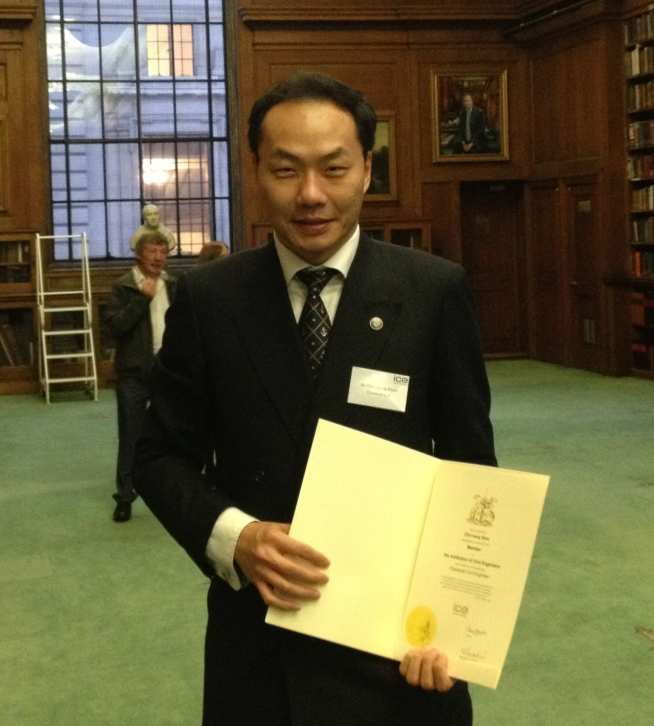
Dr Chin-Kang Clive Shen (Civil Engineering MSc 2002 and PhD 2012) is a tunnel designer for Crossrail, employed by Mott MacDonald, leading the primary lining design and numerical modelling of underground stations in Crossrail's headquarters in Canary Wharf, and providing soil-structure interaction information for other underground structure designs.
What did you learn during your time at Imperial, in class or out?
"To face the challenge, analyse it, and find the optimum solution to tackle it successfully."
Can you tell us about your studies at Imperial?
"The coursework for MSc Soil Mechanics was tough, however being able to learn lots of most advanced professional knowledge was equally enjoyable. My favourite lecture was given by Professor John Burland, who saved the PISA tower. The PhD research to be honest was quite lonely, however finally my hard work has turned out to be something valuable contributed to the world."
What is your fondest memory of your time here?
"It was hard but very rewarding in terms of professional status, and many of my best friends now, I met as my colleagues both in MSc and PhD."
Tell us a bit about the work you're doing now
"I'm working in sprayed concrete lining design for Crossrail tunnels. I am leading the primary lining design and numerical modelling for most Crossrail underground stations, namely Bond Street, Tottenham Court Road, Farringdon, Liverpool Street, and Whitechapel, and provide soil-structure interaction information for other underground structure designs."
How has what you learnt at Imperial helped you in your career so far?
"My sound knowledge of soil mechanics, especially in London clay behaviour, has helped me in looking for engineering solutions while designing underground excavation and supporting structures."
What have been your career highlights and lowlights?
"Crossrail is a high profile project and a career highlight. Being respected as one of the lead tunnel designers, being able to connect with people from different backgrounds, and also being able to provide optimum engineering solutions fulfils my professional achievements.
A lowlight is that sometimes this work could be quite stressful because the contractor is waiting on site for the solution or judgement. A decision might cause huge financial loss or gain, and normally has to consider every possibility and the potential risks of the solution."
What does a typical day look like for you now?
"Checking emails first thing in the morning or colleagues come to my desk to consult my opinion, doing numerical analysis if necessary, supervise and give instructions to graduate engineers, checking design reports and participating meetings where necessary, and site visit sometimes to validate our designs."
What are your plans for the future?
"I have successfully been awarded my Chartership through the Institution of Civil Engineers this Spring. I am thinking of being involved in more project manager/director level work, and of course keeping up my technical expertise in tackling particularly challenging engineering problems."
What would be your advice for current students?
"Study hard but also learn to present yourself appropriately and professionally. Build up professional networks - the earlier the better."
What’s the most difficult decision you’ve ever had to make?
"I was in the United States when I received a late offer from Imperial in September, two weeks before my MSc course started, due to missing post. I struggled to make the decision, but I decided to withdraw everything in the States and rushed to London and England, a place I have never been before. This is how I ended up with an MSc and a PhD from Imperial. I think it was a good decision to accelerate my professional career, and London is still very attractive to me."
Do you have a favourite quote or saying?
"Choose what you love, love what you chose. Do your best to never regret."
Clive's advice for current students
"Study hard but also learn to present yourself appropriately and professionally. Build up professional networks - the earlier the better."